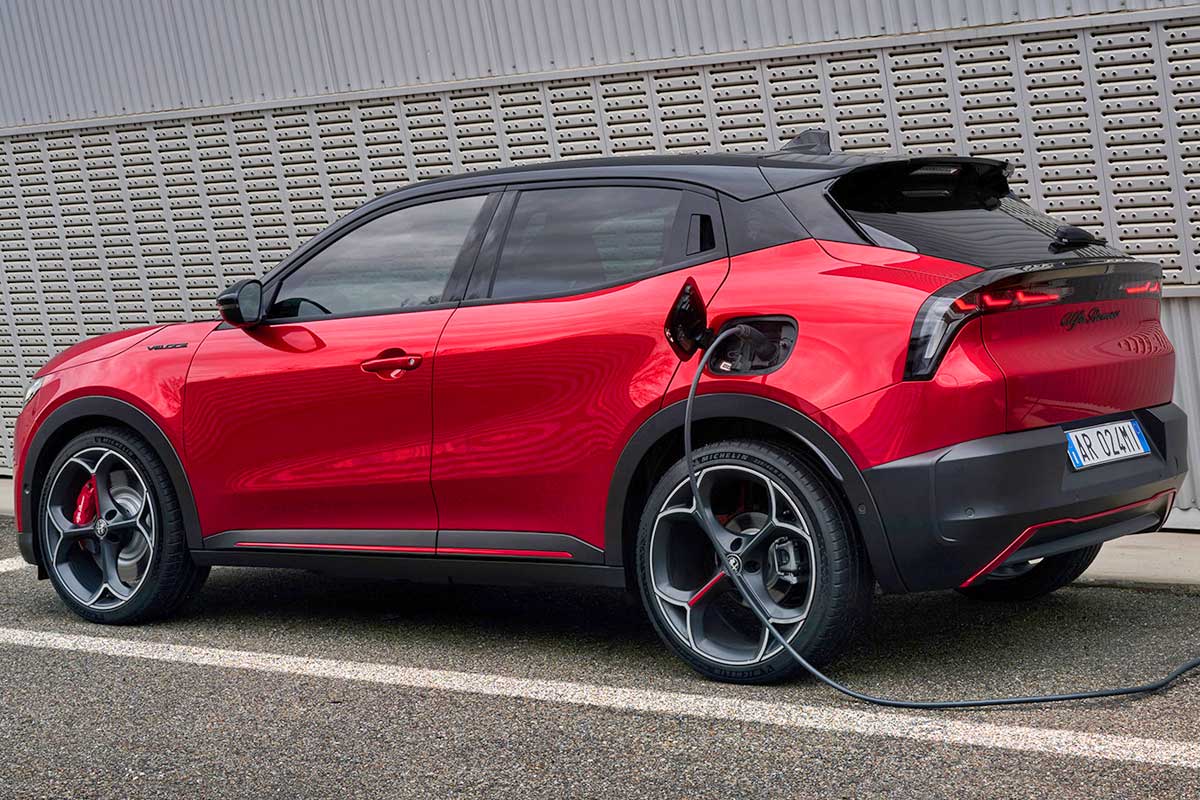
In 2022, when cryptocurrencies, NFTs and blockchain occupied all technophile conversations, Alfa Romeo created a surprise by announcing that its latest SUV, the Tonale, would be the first mass-produced vehicle to feature an NFT digital certificate. A world first in the automotive industry, it was the talk of the town at the time. Two years later, the technology is still there, albeit more discreetly... but still present on the Junior, the brand's new compact SUV. An opportunity to ask a simple question: what's the point, really?
A trendy technology for 2022...
When Alfa Romeo unveiled the Tonale in March 2022, it did so with a strong promise: to offer a non-forgeable digital certificate to guarantee the vehicle's history. The NFT, for "Non-Fungible Token", relies on the blockchain to record data (mileage, maintenance, etc.) and turn it into a tamper-proof digital identity card, linked to the vehicle.
The brand is banking on this innovation to win over corporate fleets and used car buyers, by promoting a tool for transparency. designed to enhance the residual value of models.
... discreet but still there in 2025
Two years on, the NFT hype has largely died down. Few automakers are still talking about them, and many have abandoned projects based on this technology. Except Alfa Romeo.
Because yes, even if the manufacturer no longer uses it as a major marketing argument, the NFT digital certificate is still there, now integrated into the entire range, including the latest model, the Junior. The official description reads in black and white:
"Thanks to its new-generation software architecture, the Alfa Romeo Junior adopts the Alfa Romeo non-fungible token (NFT)... This registration can guarantee that the car has been properly maintained and it can have a positive impact on residual value."
The same is true of the press release, in which the brand emphasizes that this certificate is common to the entire range, including the restyled Giulia and Stelvio, which have also been equipped with this technology since 2022.
Why this discretion?
So why isn't Alfa Romeo promoting this innovation as much as it used to? No doubt because the term "NFT" has become more divisive than selling. Between speculative bubbles and the general public's growing disinterest, blockchain is no longer the stuff of dreams.
But Alfa Romeo has made the most of this technology, using it for a concrete purpose: to certify a vehicle's history. No digital art, no speculation, just a tool to reassure buyers.
As the brand already explained at the time:
"In the used car market, NFT certification represents an additional source of credibility that owners or distribution networks will be able to rely on."
A unique technology in the automotive industry?
As far as we know, no other brand in the Stellantis Group offers a system similar to Alfa Romeo's, or at least does not promote it. The system is based on a "blockchain card", an encrypted digital register linked to the vehicle's identification number. It's not a connected gadget or a chip in the car, but an external certificate, at the customer's request, which follows the car throughout its life.
The Tonale may have paved the way at the height of the NFT craze, but the Junior confirms that the initiative was more than just a publicity stunt. By integrating this technology into its entire range, Alfa Romeo is betting on digital confidence, in a used car market where a vehicle's history can change everything.
So, what's the point? Not to look pretty in a showroom. But to guarantee, in black and white (and on the blockchain), that your Alfa has been well maintained. And that's perhaps the most reasonable and sustainable use we could imagine for an NFT.
Ich bin mir sicher das dies nicht 100 Prozent Manipulationssicher ist, dennoch habe ich die Erfahrungen gemacht das es sehr positiv bei den Kunden ankam ein " digitales Serviceheft " zu haben. Keine Innovation aber definitiv ein Verkaufsargument. Diejenigen die einen Alfa privat kaufen, fahren diesen oft über 4 Jahre und bei 99,95 Prozent stimmt der Service sowieso.